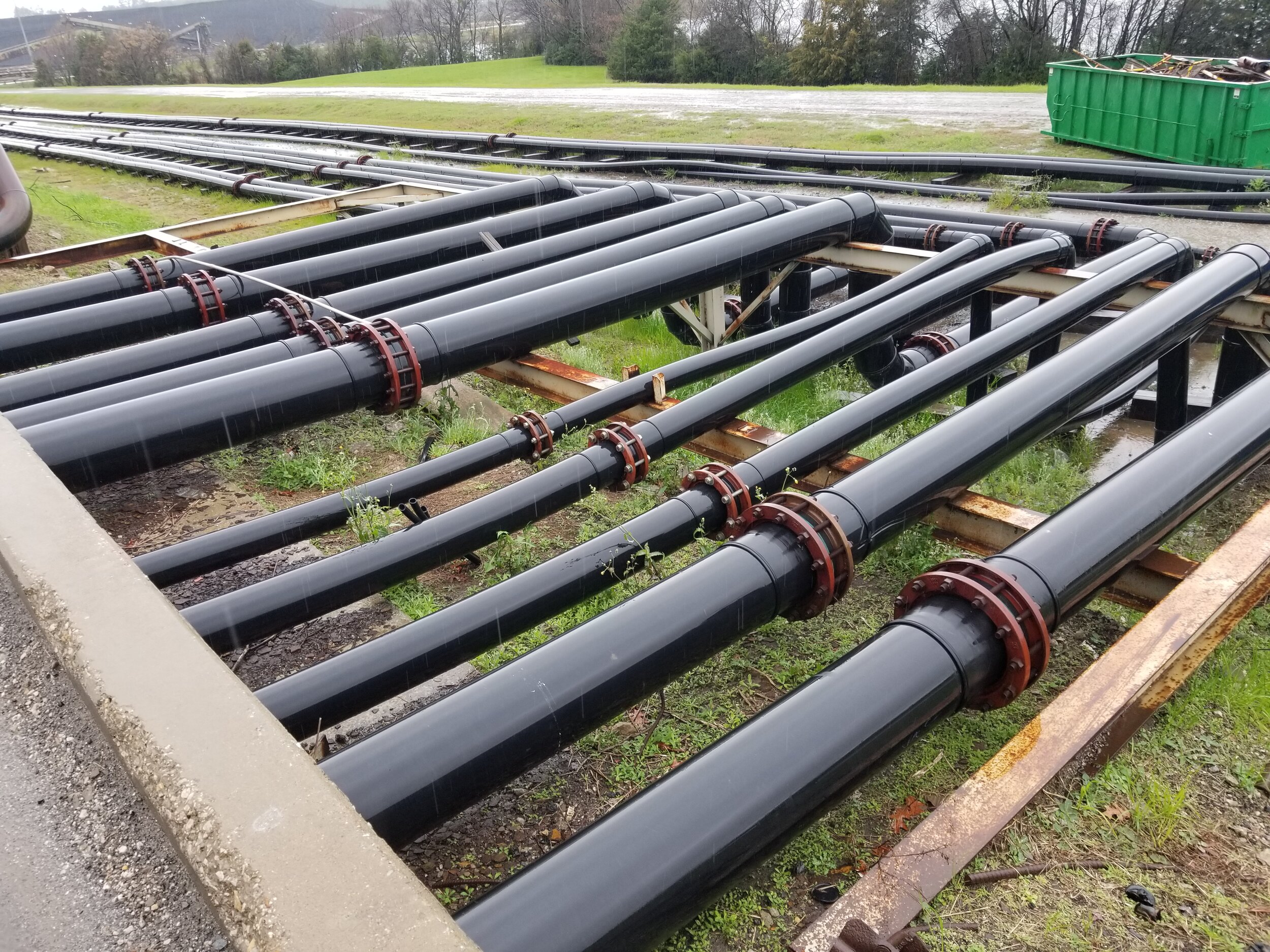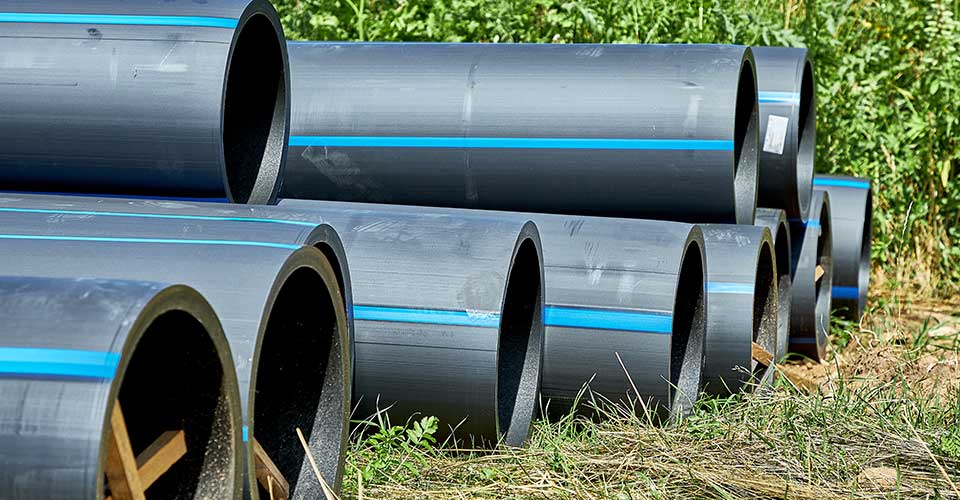Recognizing the Secret Perks of HDPE Pipeline for Water and Wastewater Administration
The usage of HDPE pipe in water and wastewater management provides numerous benefits that merit consideration. Its extraordinary resilience and lengthy lifespan make it a favored choice for several tasks. In addition, the material's resistance to rust and chemical damage improves its reliability in various settings. The benefits prolong beyond simply long life and resistance. Pipe Manufacturing Midland TX. Exploring its cost-effectiveness and ecological impact discloses a lot more compelling reasons for its prevalent adoption in contemporary facilities
Extraordinary Toughness and Longevity

HDPE pipe sticks out for its phenomenal durability and long life, making it a preferred choice in water management systems. Created from high-density polyethylene, these pipes can withstand substantial stress and stress, making sure reliable efficiency over time. Their robust nature permits them to sustain extreme environmental conditions, consisting of temperature changes and soil movements, which can cause other products to fail.
The life-span of HDPE pipes usually surpasses half a century, providing an economical option for communities and industries alike. Additionally, the material's light-weight residential or commercial properties simplify setup, decreasing labor expenses and timeframes. This toughness minimizes the demand for regular repair work or replacements, even more boosting its economic charm.
In water monitoring applications, the integrity of HDPE pipelines means less interruptions and boosted solution continuity, making them integral to lasting framework advancement. The combination of longevity and longevity strengthens HDPE's function as a keystone in efficient water management options.

Resistance to Corrosion and Chemical Damage
While many materials catch corrosion and chemical damage in time, HDPE pipelines show amazing resistance, making them optimal for different water monitoring applications. This resilience stems from the molecular structure of high-density polyethylene, which is naturally non-reactive and does not corrode like metals or break down from exposure to severe chemicals. Therefore, HDPE is very efficient in settings with hostile substances, such as wastewater systems that might have acids, bases, and natural solvents.
Additionally, HDPE pipes can withstand ecological elements such as soil acidity and saline conditions, additionally boosting their suitability for varied applications (hdpe pipe in stock Midland TX). Their capacity to maintain structural integrity in time minimizes the danger of leakages and failures, which is crucial in making sure the safety and integrity of water distribution and wastewater monitoring systems. As a result, the resistance to rust and chemical damage markedly adds to the general efficiency and long life of HDPE piping options
Cost-Effectiveness and Economic Benefits
When thinking about the monetary implications of water administration systems, the cost-effectiveness of HDPE pipes ends up being obvious. These pipelines supply reduced installation and upkeep costs compared to standard products like metal or concrete. Their lightweight nature streamlines transportation and installment, causing lowered labor costs. In addition, HDPE pipes show a lengthy life expectancy, commonly surpassing half a century, which translates to less substitutes and lasting cost savings.
Furthermore, the resistance of HDPE to rust and chemical damages reduces the requirement for costly fixings and substitutes. The pipelines likewise support reliable water flow, minimizing energy expenses linked with pumping systems. By alleviating leakages and water loss, HDPE pipes add to considerable economic benefits for communities and markets alike. On the whole, the preliminary financial investment in HDPE piping can yield significant financial returns over the life expectancy of the water administration system, making it a prudent option for sustainable facilities growth.
Environmental Sustainability and Decreased Impact

Versatility and Adaptability in Setup
Due to their distinct residential properties, HDPE pipelines provide exceptional adaptability and adaptability in setup, making them suitable for a large range of applications. Their lightweight nature permits for less complicated handling and transportation, reducing labor prices and installation time. HDPE pipelines can be curved and formed to here fit different surfaces and job requirements, which is especially advantageous in testing atmospheres.
In addition, their resistance to corrosion and chemical damages permits installation in diverse settings without the requirement for specialized protective layers. The ability to fuse joints develops a continual, leak-free system, improving the total honesty and dependability of the setup. HDPE's adaptability also suits ground movement, minimizing the danger of damage in areas susceptible to moving soil. Generally, these features make HDPE pipes not just flexible yet additionally a favored option for water and wastewater administration systems.
Often Asked Inquiries
Exactly How Does HDPE Pipeline Compare to PVC in Water Monitoring Applications?
HDPE pipeline uses premium flexibility, resistance to deterioration, and resilience contrasted to PVC. Its lighter weight facilitates less complicated installment, while its long life expectancy lowers replacement costs, making HDPE a preferred selection in water administration applications.
What Is the Lifespan of HDPE Piping Under Typical Conditions?
Under typical conditions, HDPE pipes can have a lifespan ranging from 50 to 100 years. Their longevity and resistance to deterioration add to their long-term performance in various applications, making them a trustworthy option for infrastructure.
Are HDPE Water Lines Recyclable After Their Life Span?
Yes, HDPE pipelines are recyclable after their service life. American Plastics HDPE Pipe Manufacturing. They can be refined and repurposed right into brand-new items, substantially minimizing environmental influence and advertising sustainability within the industry, making them an environment-friendly choice for piping remedies
What Is the Installation Refine for HDPE Water Lines?
The installation procedure for HDPE pipes includes website preparation, trenching, pipe fusion or mechanical signing up with, backfilling, and pressure screening. Correct strategies guarantee a resilient and effective system for transporting water and wastewater efficiently.
Can HDPE Water Lines Be Utilized for Both Potable and Non-Potable Water Systems?
Yes, HDPE pipelines can be made use of for both safe and clean and non-potable water systems. Their flexibility, toughness, and resistance to rust make them appropriate for various applications, making certain secure and reliable transport of water in various contexts.